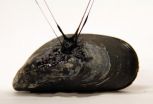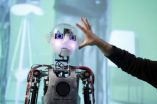Denmark, Finland and Belgium have best democracies
2011-01-28
(Press-News.org) A new democracy barometer from the University of Zurich and the Social Science Research Center Berlin (WZB) shows the development of the thirty best democracies in the world. Den-mark, Finland and Belgium have the highest quality of democracy, whereas Great Britain, France, Poland, South Africa and Costa Rica the lowest. Moreover, the barometer shows no evidence of a crisis of democracy.
Diagnoses of a crisis of democracy are as old as democracy itself; they are a common theme in the political discourse of the Western world. However, until now there was no instrument that allowed a systematic measurement of the quality and stability of democracy in highly developed industrialized countries across national borders and over long periods of time. A democracy barometer that has analyzed the development of the most important aspects of the world's thirty foremost democracies since 1990 has now been presented at the University of Zurich.
The barometer uses 100 empirical indicators to measure how well a country complies with the three democratic principles of freedom, equality and control as well as the nine basic functions of democ-racy. The comparison of thirty established democracies between 1995 and 2005 has revealed that Denmark is leading the way, followed by Finland and Belgium. "In the comparison, the lowest quality is exhibited by the democracies in Poland, South Africa and Costa Rica," says Marc Bühlmann from the University of Zurich. While Italy, as might be expected, finds itself towards the bottom end of the scale, it is surprising that Great Britain (26th) and France (27th) are also so far down the ranking. Equally surprising is the fact that Switzerland (14th) is only mediocre and lags behind 11th- placed Germany.
Quality of democracy on the rise
The democracy barometer can also be used to measure the quality of democratic systems over time. "There was, however, no evidence of an overall crisis or a decline in the quality of democracy," according to Bühlmann. Quite the contrary: if the quality of democracy in all thirty countries is seen as a whole, an increase in the quality of democracy from 1995 to 2000 can be observed and, despite a slight dip again between 2000 and 2005, it is still at a higher level in 2005 than in 1995. Consideration of the individual countries reveals that nine democracies exhibit a lower quality than in 1995 (ITA, CZE, POR, USA, CRC, FRA, IRL, AUS and GER), whereas the quality of democracy has risen in the remaining twenty-one countries.
The democracy barometer registers the differences in the quality of political participation, representa-tion and transparency as well as those concerning the rule of law, individual liberties or the ability of a government to actually implement democratic decisions. If the countries are viewed as a whole, an increase in the quality of transparency and representation becomes apparent, but so does a slight decline in the rule of law. The positive trend can be attributed – among other things – to the ever-better integration of women in the political process and the increase in transparency virtually forced into being by citizens, audit divisions, ombudsmen, NGOs and the media. On the other hand, the rule of law is losing ground due to an increasing unequal treatment of minorities. Here, too, there are ma-jor differences between the individual countries. Positive developments are apparent in younger de-mocracies such as South Africa and Cyprus, which are making up a lot of ground in terms of develop-ing and protecting personal liberties, whilst a decline was evident in George W. Bush's America and Silvio Berlusconi's Italy.
"Democracy is still a work in progress," say the two project leaders Marc Bühlmann (Zurich) and Prof. Wolfgang Merkel (Berlin). Sustainable democratization is needed, even in established democracies." Our democracy barometer shows the strengths and weaknesses of the democracies in the individual countries. But it also reveals where progress and success have been achieved and where it is worth studying the best practices of successful democracies more closely," say Merkel und Bühlmann.
Country comparison (average quality of democracy 1995-2005):
Denmark: 88.3
Finland: 87.7
Belgium: 85.1
Iceland: 83.5
Sweden: 82.9
Norway: 82.1
Canada: 79.4
Netherlands: 79.0
Luxembourg: 75.2
USA: 74.9
Germany: 73.2
New Zealand: 72.1
Slovenia: 69.6
Switzerland: 67.8
Ireland: 67.0
Portugal: 66.7
Spain: 66.6
Australia: 65.5
Hungary: 63.2
Austria: 63.1
Czech Republic: 58.2
Italy: 57.0
Cyprus: 55.5
Malta: 54.2
Japan: 45.8
Great Britain: 44.6
France: 42.8
Poland: 42.0
South Africa: 39.8
Costa Rica: 32.7
INFORMATION:
END
ELSE PRESS RELEASES FROM THIS DATE:
2011-01-28
CHAPEL HILL, N.C. – Researchers at the University of North Carolina at Chapel Hill have pinpointed a crucial function for a key player in the development of the nervous system. They found that this player – a protein called Erk – is necessary for nerve fibers to be wrapped with an insulating substance called myelin, which allows messages to be sent from the brain to the peripheral limbs and back again.
The finding has particular importance because several neurodevelopmental disorders have recently been linked to genetic mutations in the complex developmental cascade ...
2011-01-28
Scientists can now manufacture a synthetic version of the self-healing sticky substance that mussels use to anchor themselves to rocks in pounding ocean surf and surging tidal basins. A patent is pending on the substance, whose potential applications include use as an adhesive or coating for underwater machinery or in biomedical settings as a surgical adhesive or bonding agent for implants.
Inspiring the invention were the hair-thin holdfast fibers that mussels secrete to stick against rocks in lakes, rivers and oceans. "Everything amazingly just self-assembles underwater ...
2011-01-28
URBANA – A new University of Illinois study provides convincing evidence that the way you prepare and consume your broccoli matters, and also suggests that teaming broccoli with broccoli sprouts may make the vegetable's anti-cancer effect almost twice as powerful.
"Broccoli, prepared correctly, is an extremely potent cancer-fighting agent—three to five servings a week are enough to have an effect. To get broccoli's benefits, though, the enzyme myrosinase has to be present; if it's not there, sulforaphane, broccoli's cancer-preventive and anti-inflammatory component, doesn't ...
2011-01-28
Researchers at the Center for Injury Research and Policy of The Research Institute at Nationwide Children's Hospital examined running-related injuries among children and adolescents 6 to 18 years old and found that an estimated 225,344 cases were treated in U.S. emergency departments from 1994 through 2007, for an average of more than 16,000 each year. During the 14-year study period, the annual number of running-related injuries increased 34 percent.
According to the study, appearing in the February 2011 issue of Clinical Pediatrics, the majority of running-related ...
2011-01-28
COLUMBIA, Mo. – In a time of shrinking budgets, one University of Missouri professor believes that the current approach to juvenile crime is much too expensive to continue – and he has the numbers to prove it.
Charles Borduin, a professor of psychological sciences in the MU College of Arts and Science finds that multisystemic therapy (MST) is more effective in the lives of troubled youth and costs less.
Borduin has pioneered the model for the treatment and prevention of serious mental health problems in children and adolescents throughout the course of his career. MST ...
2011-01-28
(WASHINGTON, January 27, 2011) –Severe Combined Immunodeficiency (SCID) occurs in just one out of every 50,000 to 100,000 births in the United States, yet it is the most serious primary immunodeficiency disorder.[1] A study published today in Blood, the Journal of the American Society of Hematology (ASH), demonstrates that babies with SCID who are diagnosed at birth and receive a hematopoietic stem cell transplant (HSCT), which is the transplantation of blood-forming stem cells, have significantly improved survival.
SCID is a rare group of genetic disorders characterized ...
2011-01-28
A study by experts at the University of Exeter has revealed that couples with similar personalities make much better parents than those with different dispositions – at least in the world of zebra finches.
Researchers found birds expressing strong personality traits, such as aggressive behaviour or a willingness to explore, did a much better job of raising young if they had a like-minded partner. Where couples were markedly different in personality, chicks didn't fare as well – being less well-fed and in poorer condition.
The research paper, published in the journal ...
2011-01-28
ANN ARBOR, Mich. — A new study questions the controversial U.S. Preventative Service Task Force recommendations for breast cancer screening, with data that shows starting at a younger age and screening more frequently will result in more lives saved.
The study analyzed the same data looked at by the task force, which issued its guidelines on mammography screening in November 2009. The study authors compared the task force's recommendations for screening every other year in women 50-74 to American Cancer Society guidelines of screening every year in women 40-84.
The ...
2011-01-28
For the first time, scientists have mapped the genome--the genetic code--of orangutans. This new tool may be used to support efforts to maintain the genetic diversity of captive and wild orangutans. The new map of the orangutan genome may also be used to help improve our understanding of the evolution of primates, including humans.
Partially funded by the National Science Foundation, the orangutan study appears in the Jan. 27 issue of Nature. It was conducted by an international team of scientists led by Devin P. Locke of the Genome Center at Washington University.
Conservation ...
2011-01-28
We have developed an 'anytime' intelligence test, in other words a test that can be interrupted at any time, but that gives a more accurate idea of the intelligence of the test subject if there is a longer time available in which to carry it out", José Hernández-Orallo, a researcher at the Polytechnic University of Valencia (UPV), tells SINC.
This is just one of the many determining factors of the universal intelligence test. "The others are that it can be applied to any subject – whether biological or not – at any point in its development (child or adult, for example), ...
LAST 30 PRESS RELEASES:
[Press-News.org] Denmark, Finland and Belgium have best democracies

